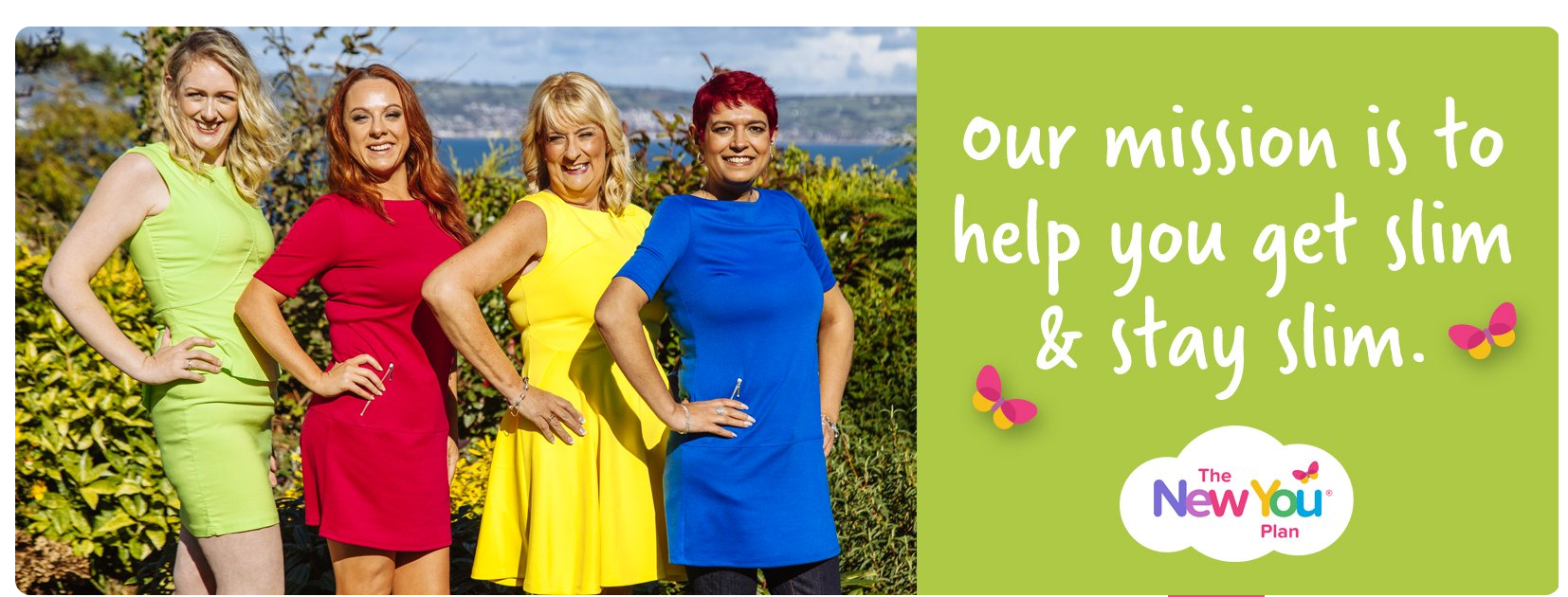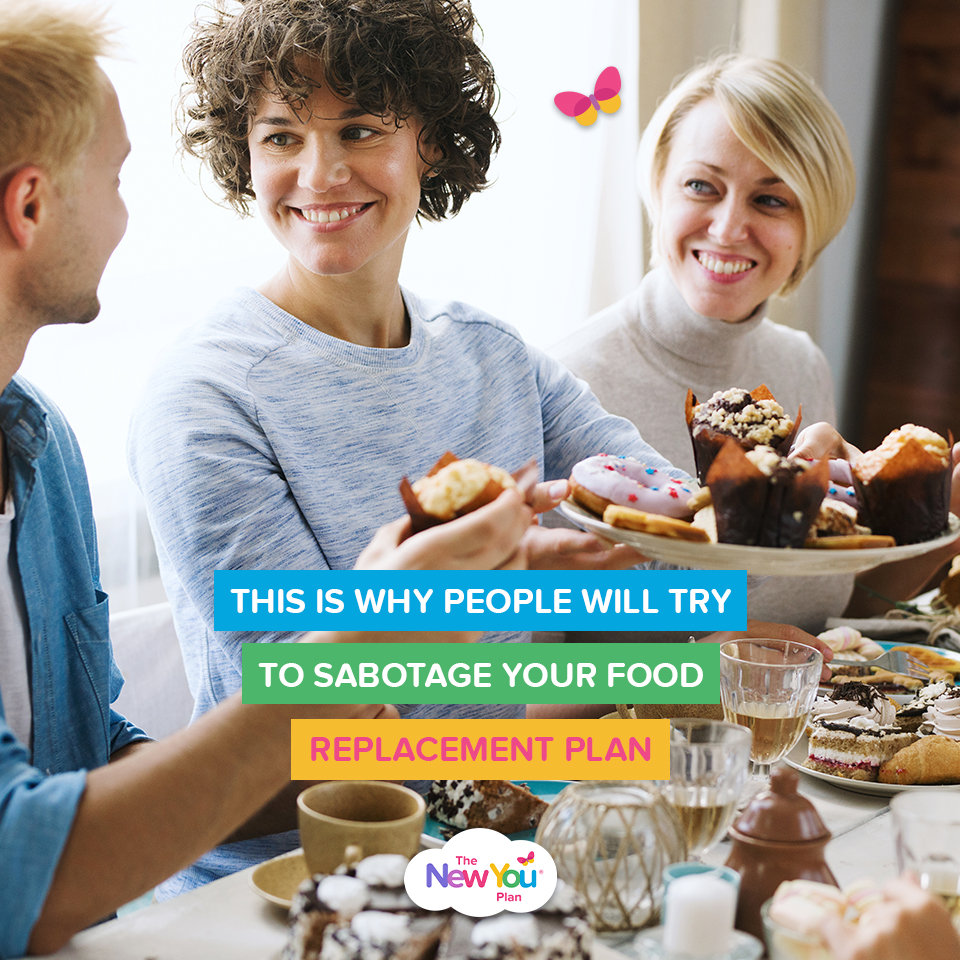
This Is Why People Will Try To Sabotage Your Food Replacement Plan

Tired of people trying to sabotage your food replacement plan? Here, we share 7 strategies to keep you on track when faced with social events…
Picture the scene. You have been invited out for drinks with friends. You take time getting ready, perhaps choosing a new outfit before walking into the bar and ordering a… sparkling water. Cue the barrage of questions and protests. Mention that you are on a Total Food Replacement plan (TFR) and you’d think the world had ended.
So why do people find it so difficult to cope when you are not eating or drinking conventional food and drink? It’s because it goes against social norms.
Social norms are the unwritten rules of behaviour that are considered acceptable in a group or society. Norms function to provide order and predictability. People choose food based on what they perceive is a social norm.

One explanation for the effect of social norms on eating behaviour is an individual’s desire to fit in – to identify with a given group and gain social approval, either to please the group or for the individual’s own benefit. When you start your TFR journey you are going against social norms and well, it tends to make people feel uncomfortable.

Here’s 7 Strategies To Keep You On Track When Faced With Social Events…
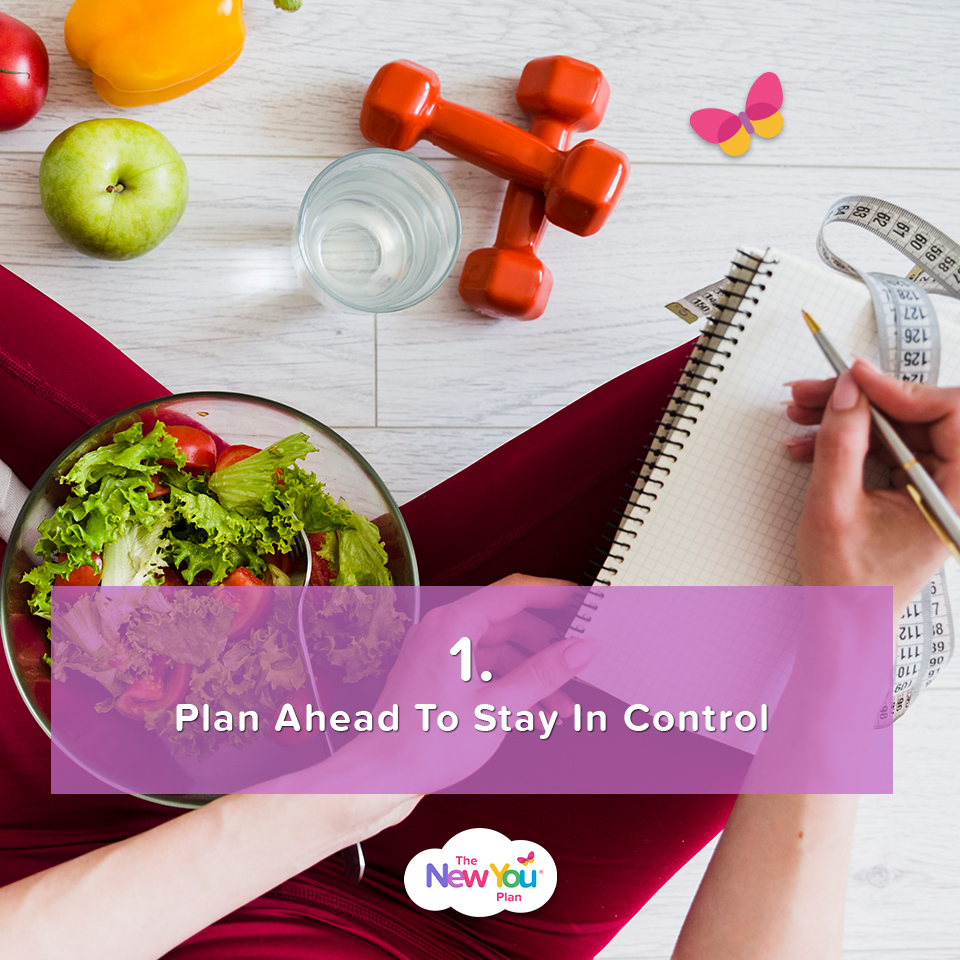
1. Plan Ahead To Stay In Control
Even if you are committed to your New You Plan “social pressure” to eat or drink from friends or others can make it difficult. Eating your New You meals before the event makes it much easier to stay on track or pack one of our delicious Bars or Snacks that you can eat on the go.
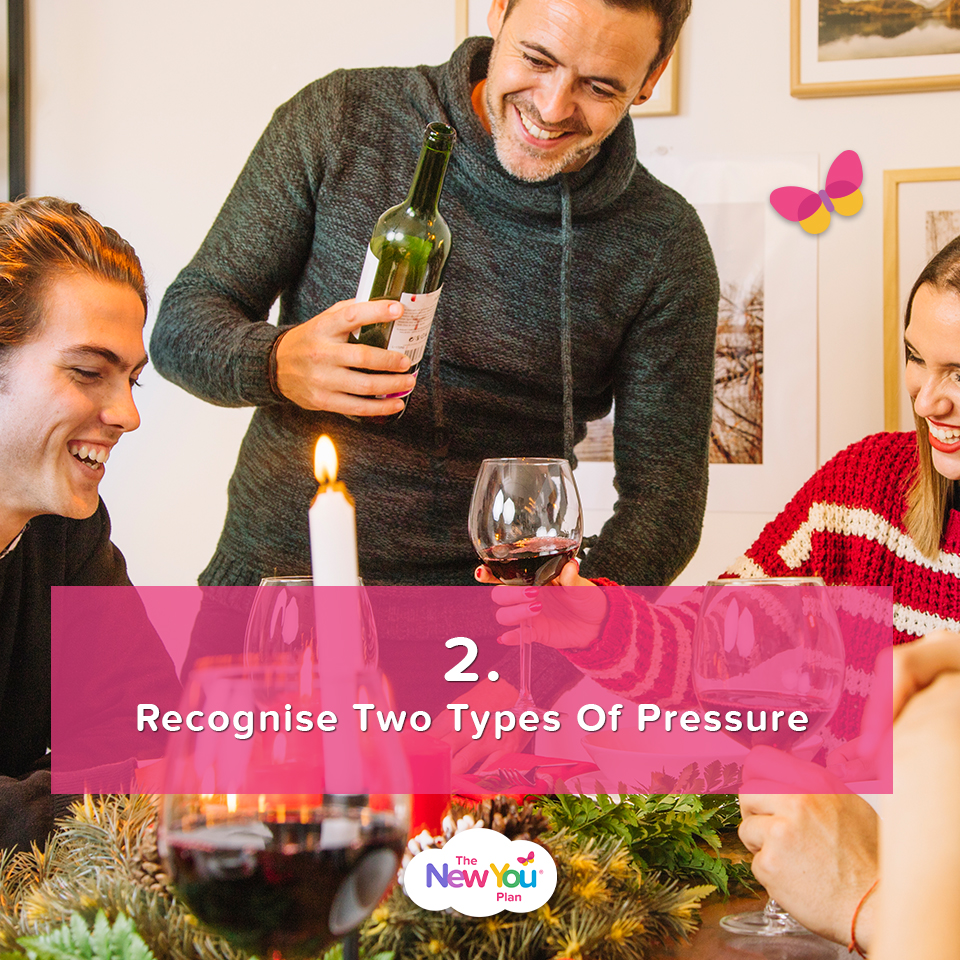
2. Recognise Two Types Of Pressure
The first step is to become aware of the two different types of social pressure to eat conventional food —direct and indirect.
- Direct social pressure is when someone offers you food or an opportunity to eat.
- Indirect social pressure is when you feel tempted to eat just by being around others who are eating—even if no one offers you food.
Take a moment to think about situations where you feel direct or indirect pressure to eat or to eat too much. Perhaps write them down. Then, for each situation, choose some resistance strategies from below, or come up with your own.
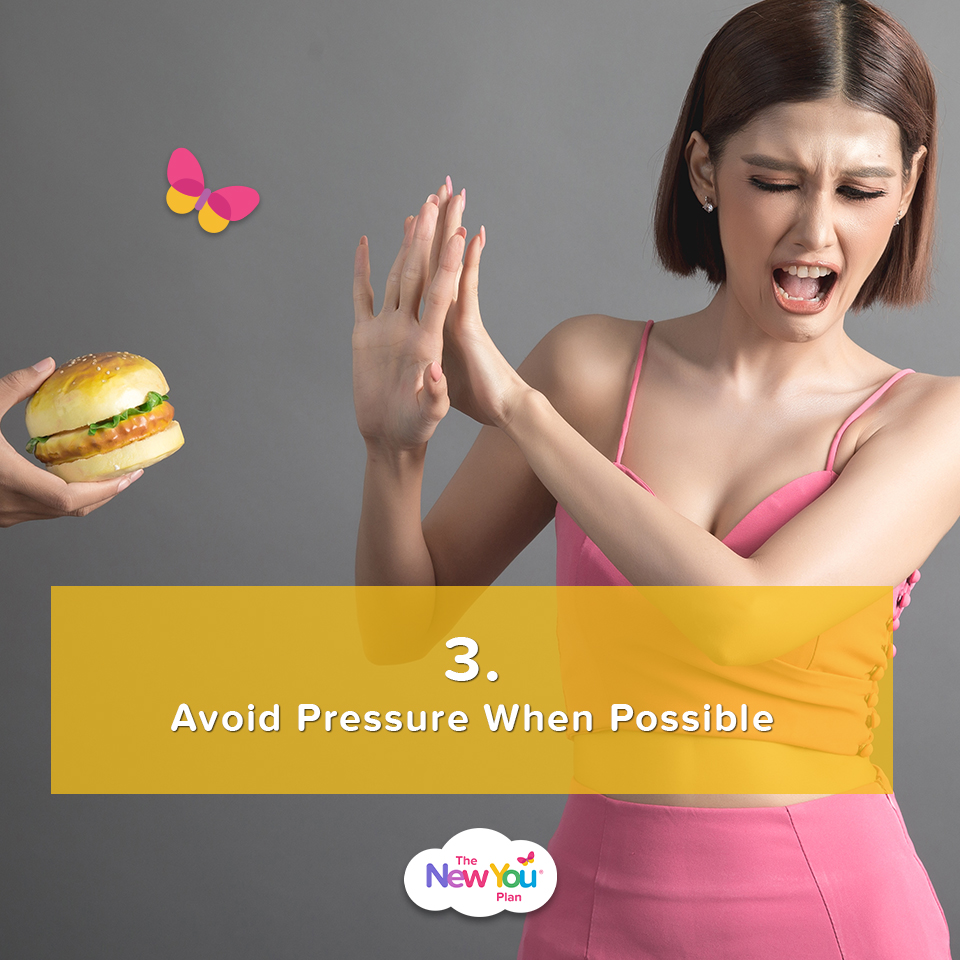
3. Avoid Pressure When Possible
For some situations, your best strategy may be avoiding them altogether. If you feel guilty about avoiding an event or turning down an invitation, remind yourself that you are not necessarily talking about “forever.” When you have confidence in your resistance skills, you may decide to ease gradually into situations you now choose to avoid.
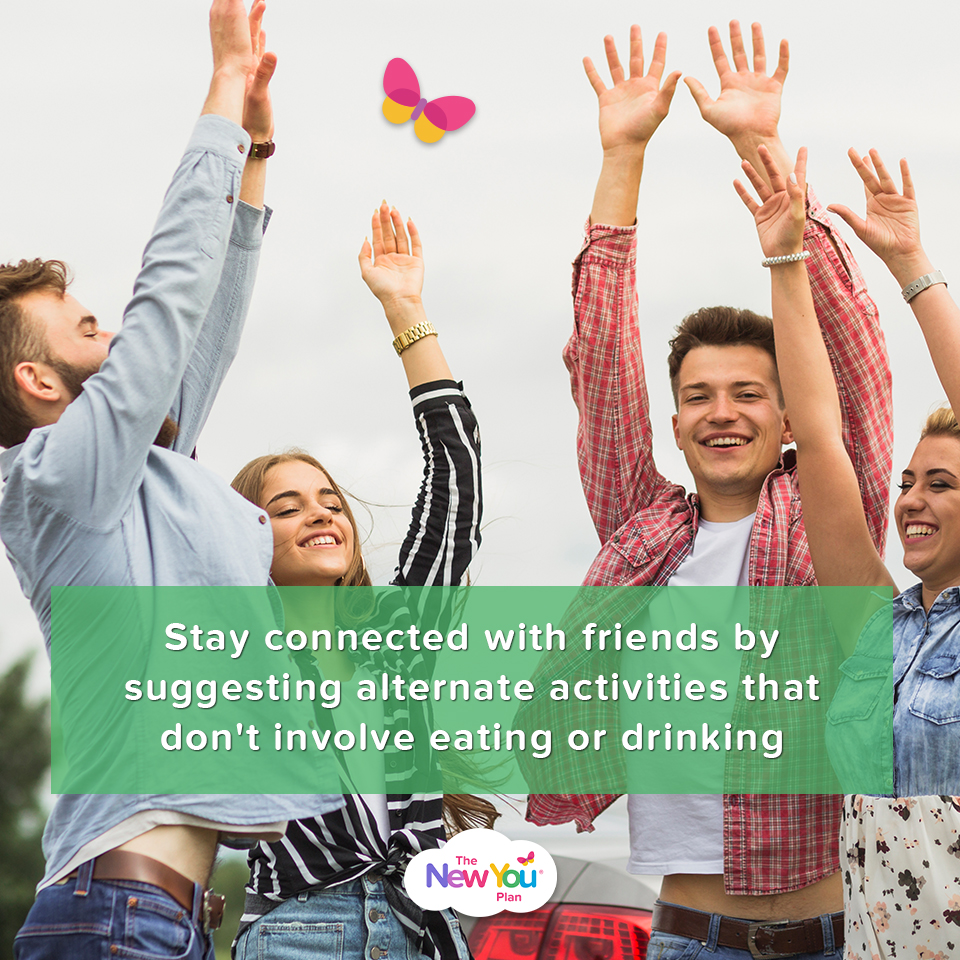
In the meantime, you can stay connected with friends by suggesting alternate activities that don’t involve eating or drinking.
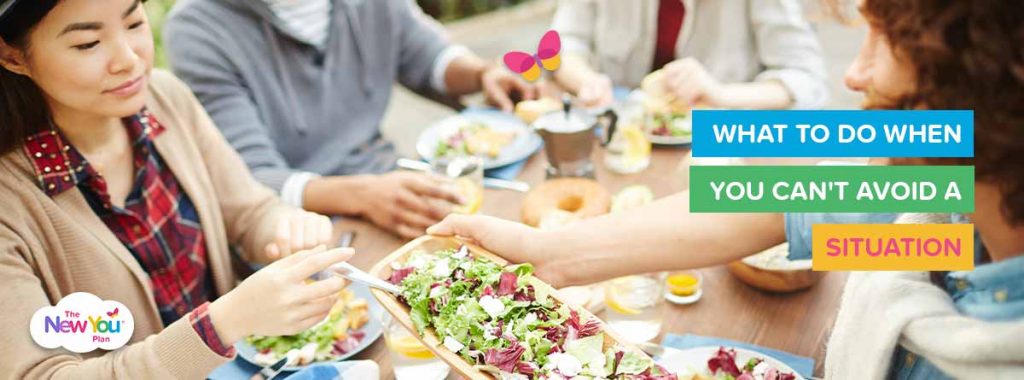
There will be some situations that you can’t avoid. These strategies can help:
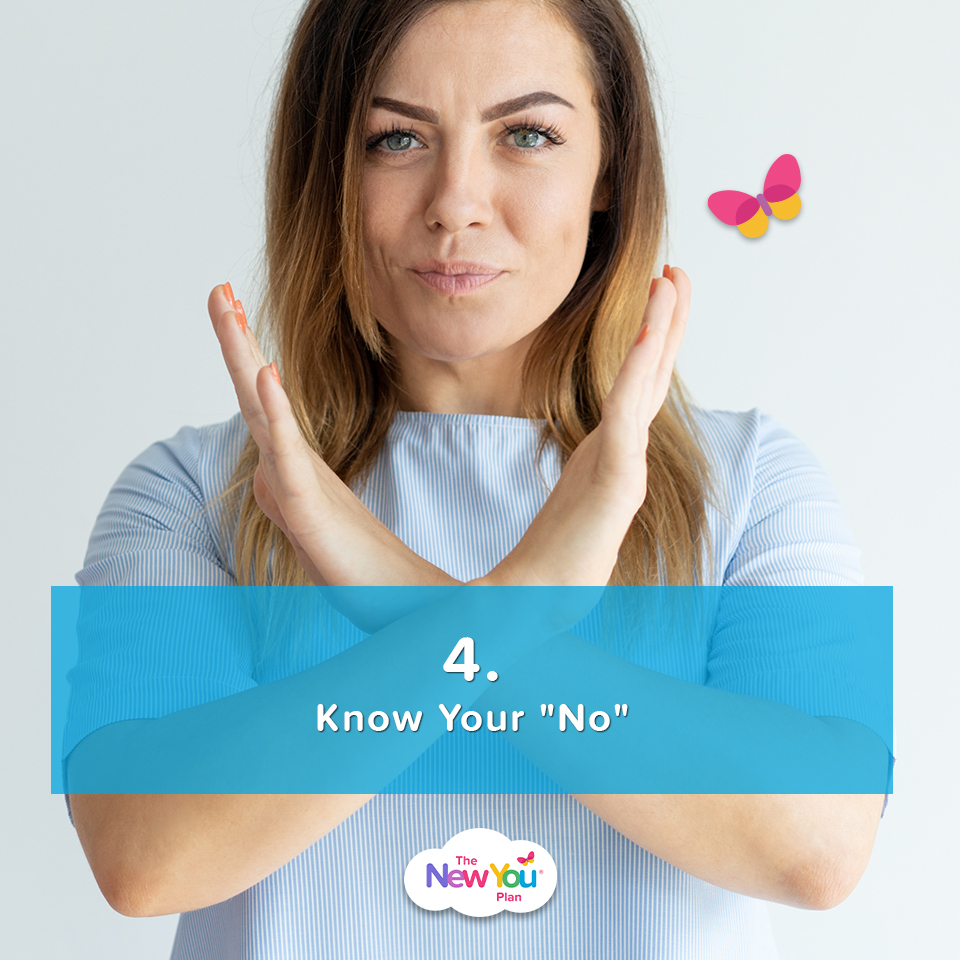
4. Know Your “No”
When you know food will be served, it’s important to have some resistance strategies lined up in advance. If you expect to be offered a food, you’ll need to be ready to deliver a convincing “no thanks.” Your goal is to be clear and firm, yet friendly and respectful. Avoid long explanations and vague excuses, as they tend to prolong the discussion and provide more of an opportunity to give in. Here are some other points to keep in mind:
- Don’t hesitate, as that will give you the chance to think of reasons to go along
- Look directly at the person and make eye contact
- Keep your response short, clear, and simple
- The person offering you food may not know you are on The New You Plan and his or her level of insistence may vary. It’s a good idea to plan a series of responses in case the person persists, from a simple refusal to a more assertive reply.
- Consider a sequence like this:
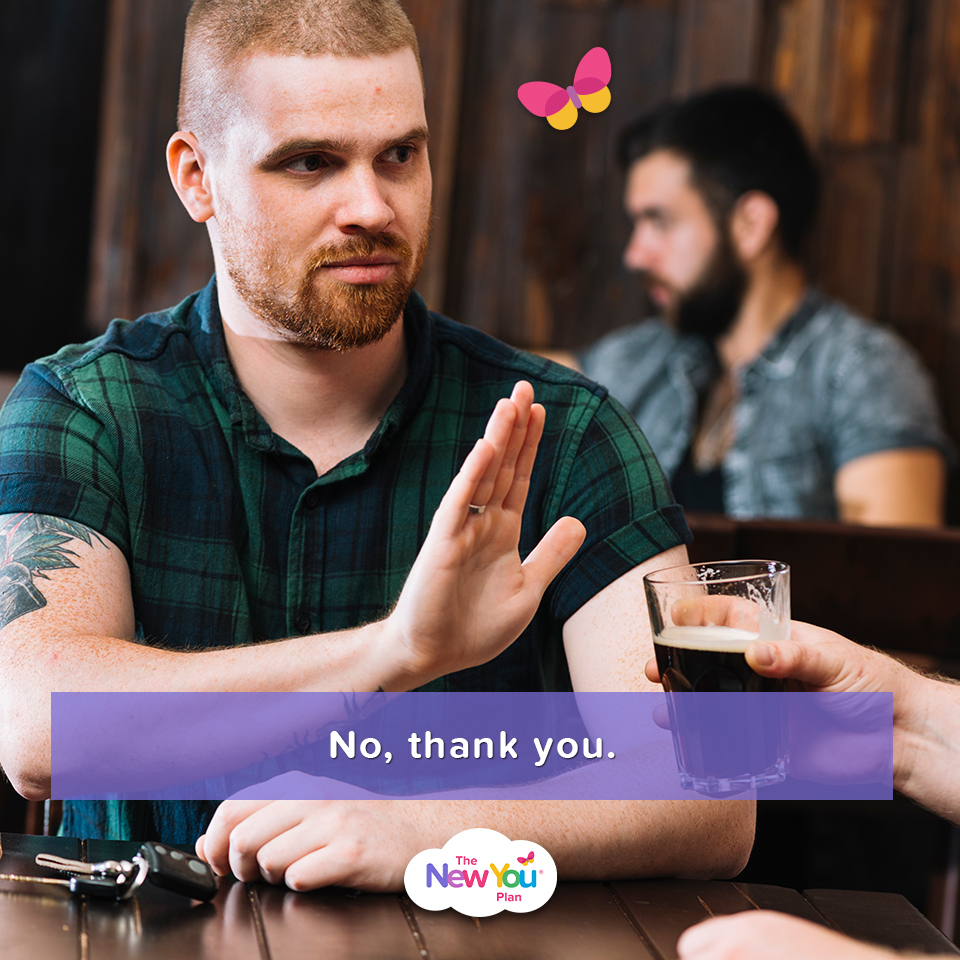
- No, thank you.
- No, thanks, I don’t want to.
- You know, I’m cutting back now (to get healthier/to take care of myself/because my doctor said to). I’d really appreciate it if you’d help me out.
- You can also try the “broken record” strategy. Each time the person makes a statement, you can simply repeat the same short, clear response. You might want to acknowledge some part of the person’s points (“I hear you…”) and then go back to your broken-record reply (“…but no thanks”). And if words fail, you can walk away.

5. Script And Practice Your “No”
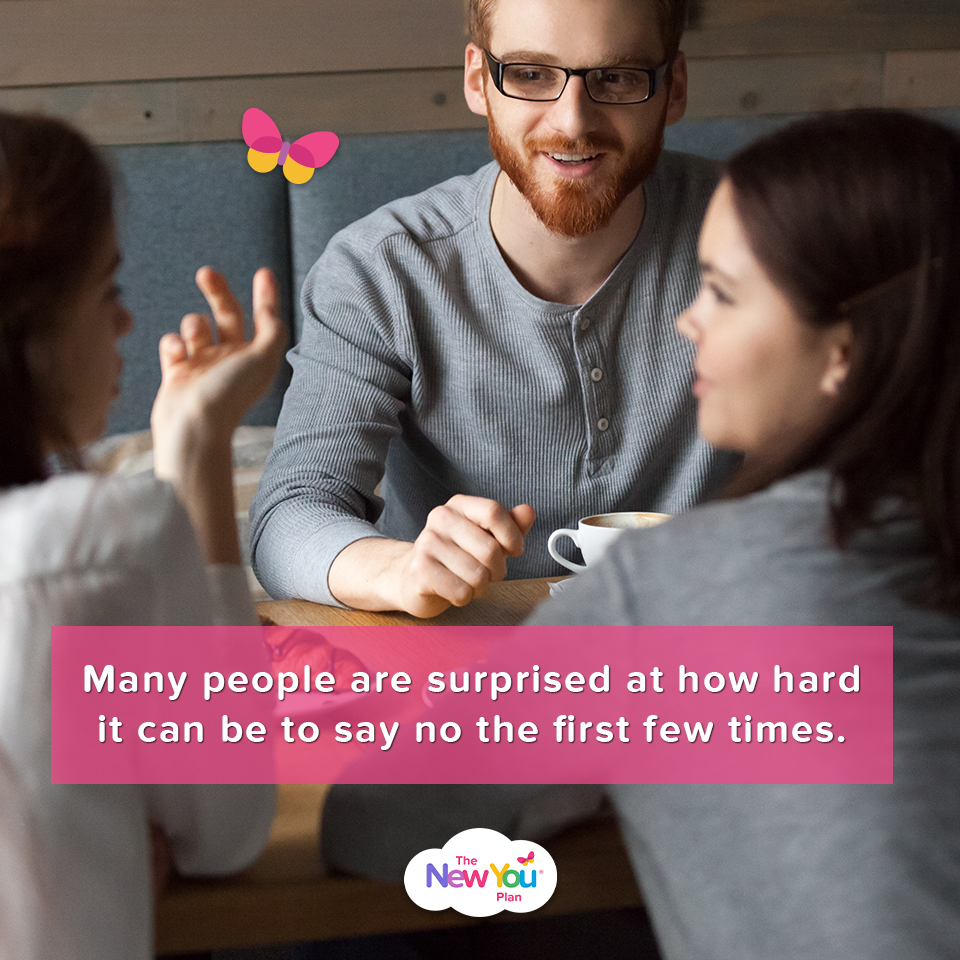
Many people are surprised at how hard it can be to say no the first few times. You can build confidence by scripting and practicing your lines. First imagine the situation and the person who’s offering the food. Then write both what the person will say and how you’ll respond, whether it’s a broken record strategy (mentioned above) or your own unique approach. Rehearse it aloud to get comfortable with your phrasing and delivery. Also, consider asking a supportive person to role-play with you, someone who would offer realistic pressure to eat and honest feedback about your responses. Whether you practice through made-up or real-world experiences, you’ll learn as you go. Keep at it, and your skills will grow over time.

6. Try Other Strategies
In addition to being prepared with your “no thanks,” consider these strategies:
- Have a sparkling water always in hand at an event
- Ask for support from others to cope with temptation
- Plan an escape if the temptation gets too great
- Ask others to refrain from pressuring you (this can be hard)
- If you have successfully refused food offers before, then recall what worked and build on it.

7. Remember, It’s Your Choice
How you think about any decision to change can affect your success. Many people who decide to use The New You Plan to successfully lose weight think “I am not allowed to eat normal food” as if an external authority were imposing rules on them. Thoughts like this can breed resentment and make it easier to give in. It’s important to challenge this kind of thinking by telling yourself that you are in charge, that you know how you want your life to be, and that you have decided to make a change.
Similarly, you may worry about how others will react or view you if you make a change. Again, challenge these thoughts by remembering that it’s your life and your choice, and that your decision should be respected.

At New You HQ we believe TFR is a gift that you give yourself. It’s not a time of deprivation but one of transformation. For more support in this area log in to our private Facebook group Secret Slimmers – an amazing tribe of men and women with the same aim – to feel healthier and happier.
Start Your TFR Journey Today!
Getting started is the first step in your journey to a brand New You! To help you understand fully how our plan works, our Get Started page was designed specifically for people new to the plan.
Head over to our site where you’ll find tonnes of important information including how our plan works, the science behind it, loads of top tips, information on our meals, as well as real customer testimonials.
Click here to visit our Get Started page!

